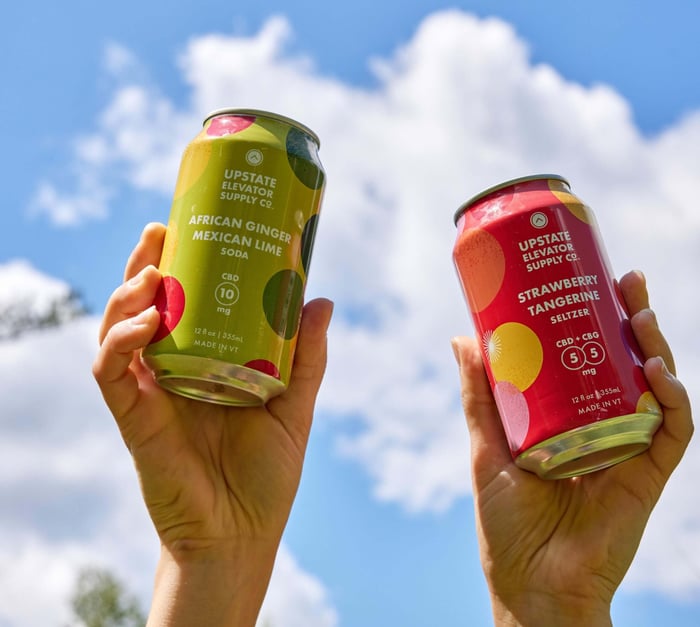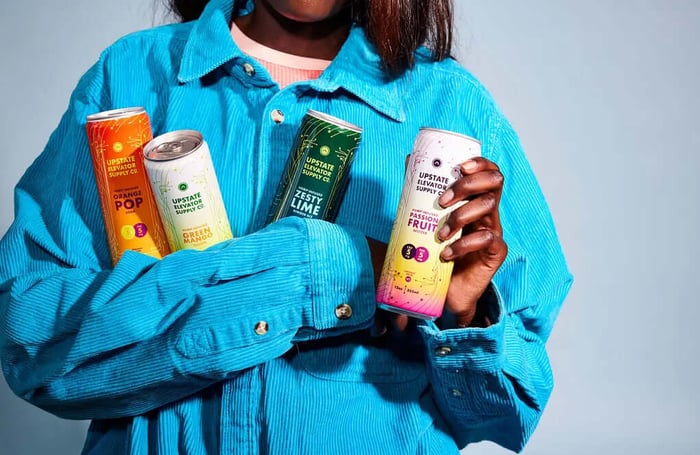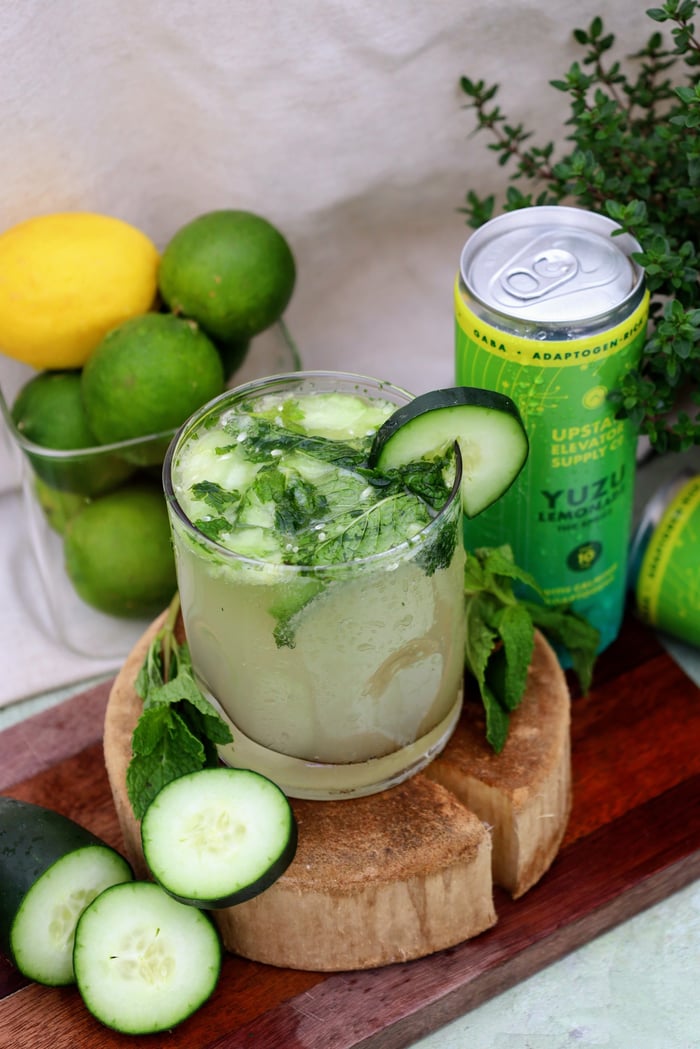In the ever-evolving landscape of wellness, CBD (Cannabidiol) has become a staple, celebrated for its potential calming and balancing effects. But have you heard about its fascinating sibling, CBG (Cannabigerol)? This lesser-known, non-psychoactive cannabinoid is stepping into the spotlight, especially for its ability to support daytime focus* and offer a smooth energy boost without the jitters.
If you're looking for natural ways to boost productivity, sharpen your concentration, or find a non-caffeinated energy source, you might be wondering: should I stick with tried-and-true CBD, or is it time to explore the benefits of CBG? Let's dive into the differences between CBG vs CBD for supporting a sense of calm for focus* and see which might be the perfect addition to your daytime routine.
What is CBD? A Quick Refresher
You likely know CBD as the go-to cannabinoid for promoting calm and relaxation. Extracted from the hemp plant, CBD is non-intoxicating (it won't get you "high") and interacts indirectly with our body's Endocannabinoid System (ECS). This complex system helps regulate various functions, including mood, sleep, and stress response. Many people turn to CBD for:
Easing feelings of overstimulation
Supporting a better and more sound sleep*
Promoting a general sense of well-being
Aiding post-workout recovery
While some find that CBD's calming effects help them dial in focus* by quieting mental noise, it's not typically sought out for direct energy enhancement.
Meet CBG: The "Mother Cannabinoid"
CBG, or Cannabigerol, holds a unique status in the cannabis plant – it's often called the "mother" or "stem cell" cannabinoid. Why? Because it's the precursor from which other cannabinoids, including CBD and THC, are synthesized as the plant matures.
This means CBG is usually present in much lower concentrations in mature hemp plants compared to CBD. Finding high-quality products rich in CBG requires specialized cultivation and extraction, making them a notable find in the wellness market.
Unlike CBD's more indirect action, CBG is thought to interact more directly with our CB1 and CB2 cannabinoid receptors, potentially leading to different effects.
CBG vs. CBD for Mental Clarity & Concentration
This is where things get interesting for anyone trying to beat brain fog or stay sharp during a busy day.
CBG: Anecdotal reports and emerging research are exploring CBG's potential to support mental clarity and concentration. Users often describe the effect as a clear-headed alertness, helping them stay on task without feeling overly stimulated. Think of it less like the jolt from coffee and more like a dial turning up your natural ability to concentrate. What is CBG's role here? It might help modulate neurotransmitters involved in focus* and attention.
CBD: While excellent for calming a racing mind, which can indirectly improve focus* for some, CBD isn't typically associated with directly sharpening concentration in the same way CBG is being discussed. Its primary strength lies in reducing distractions caused by normal, everyday stresses*.
Verdict for Focus*: If your main goal is enhanced mental clarity and task concentration, CBG presents a compelling profile worth exploring.
CBG vs. CBD for Energy & Alertness
Tired of the afternoon slump or the jitters that come with your third cup of coffee? Let's see how these non-psychoactive cannabinoids compare for energy.
CBG: Many users report that CBG benefits for energy manifest as a smooth, sustained alertness – a feeling of being awake and engaged without the wired feeling or subsequent crash associated with caffeine. It's often described as promoting productivity rather than just providing raw energy. Could CBG vs coffee be a real contest? For those sensitive to caffeine, it's an attractive prospect.
CBD: CBD's relationship with energy is more complex. While it helps regulate sleep cycles*, which contributes to daytime energy, it can be relaxing and, for some individuals (especially at higher doses), even slightly sedating. It's generally not the cannabinoid you'd reach for when seeking an immediate energy boost.
Verdict for Energy: For a clean, non-jittery boost in alertness and productivity, CBG appears to be the more promising candidate.
Psychoactivity & Side Effects
Crucially, neither CBD nor CBG, when derived from hemp according to federal regulations, will produce the intoxicating "high" associated with THC. They are non-psychoactive wellness tools. Side effects for both are generally considered mild and infrequent but can include things like dry mouth or slight changes in appetite.
How to Choose? (Or Why Not Both?)
The choice between CBG and CBD for daytime use depends on your primary goals:
Choose CBG if: Your main aim is enhanced mental clarity, and a smooth, non-caffeinated energy lift to power through your tasks.
Choose CBD if: Your priority is managing normal, everyday stresses*, promoting overall calm, or if you find that a relaxed state helps you focus* better.
Consider Both: Many users find that combining CBG and CBD offers a balanced effect, potentially harnessing the concentration-boosting benefits of CBG with the calming baseline of CBD – a prime example of the "entourage effect."
Finding Quality CBG: Look for the Proof
Because CBG is less abundant in the hemp plant, ensuring you're getting a high-quality product is vital. Always look for brands that provide transparent, third-party lab testing results, often called Certificates of Analysis (COAs). These reports verify the cannabinoid potency (how much CBG and CBD is actually in the product) and confirm purity (checking for pesticides, heavy metals, etc.).
At Upstate Elevator, we pride ourselves on rigorous testing standards. You can easily find COAs for all our products ensuring you know exactly what you're getting.
The Takeaway: Is CBG Your New Daytime Ally?
While CBD remains a cornerstone of cannabinoid wellness for calm and balance, CBG is emerging as an exciting, targeted option for those seeking enhanced daytime clarity and clean energy. Its potential to sharpen concentration and provide a smooth alertness boost without jitters or psychoactivity makes it a compelling alternative or complement to CBD.
*These statements have not been evaluated by the Food and Drug Administration. These products are not intended to diagnose, treat, cure or prevent any disease. Must be 21 years of age or older to purchase hemp products containing THC. All products contain less than 0.3% THC on a dry weight basis per the Controlled Substances Act. Consult your physician before use if you are pregnant, nursing, have allergies, or are taking any medication.



















